Section 811
Program Overview
The Section 811 Project Rental Assistance (PRA) program provides project-based rental assistance for extremely low-income people with disabilities linked with long term services. The program is made possible through a partnership between Wisconsin Housing and Economic Development Authority (WHEDA) and the State of Wisconsin Department of Health Services (DHS).
The Section 811 PRA program creates the opportunity for persons with disabilities to live as independently as possible through the coordination of voluntary services and providing a choice of subsidized, integrated rental housing options.
The program is available only in specific metropolitan areas.
Target Population
The target population for Section 811 PRA Program units in Wisconsin will be persons with disabilities who are exiting institutions and desire to return to community living, or are at risk of institutionalization because of the loss of housing or the substandard quality of their current housing. Their primary barrier to returning to the community or remaining in the community is lack of suitable and affordable housing.
Tenant Participation Eligibility
To occupy a Section 811 unit, a person must meet the following eligibility criteria:
- Total Household Income: at or below 30% of AMI (Area Median Income)
- Medicaid recipient (determined by Medicaid number) or Medicaid eligible
- Disabled as defined by HUD 811
- 18 or over and below 62 years of age at date of move in
- Not a lifetime registered sex offender
- Not convicted of methamphetamine production on housing authority property
- Referred by a qualified agent
Find a Referral Agent
The 811 program partners with Wisconsin’s, Aging and Disability Resource Centers (ADRCs), Independent Living Centers (ILCs), and Include Respect I Self-Direct consultant agencies (ICAs). Referral agents are available at these organizations.
ADRC
Aging and Disability Resource Centers help older people and adults with disabilities. The ADRC provides information on a variety of programs and services. The ADRC also helps people apply for programs and benefits.
Find your local ADRC:
https://www.dhs.wisconsin.gov/adrc/consumer/index.htm
ILC
An independent living center (ILC) is a consumer-directed, non-profit organization that provides four core services: peer support, information and referral, independent living skills training, and person and systems advocacy.
Find your local ILC:
https://www.dhs.wisconsin.gov/disabilities/physical/ilcs-contact.htm
ICA
If you participate in IRIS (Include, Respect, I Self-Direct), you will work with an IRIS consultant agency (ICA). Your aging and disability resource center (ADRC) will offer you options, and then you can choose which agency you want to work with. The ICA helps IRIS participants manage their own care. They also handle the day-to-day operations of the IRIS program.
Find your local ICA:
https://www.dhs.wisconsin.gov/iris/ica.htm
MCO
When a person enrolls in Family Care, Family Care Partnership (Partnership), or PACE (Program of All-Inclusive Care for the Elderly), they become a member of a managed care organization (MCO). MCOs help: manage the Family Care, Partnership, and PACE programs; provide or plan covered services; and make sure services fit each member’s needs and preferences at any given time.
Find your local MCO:
Family Care MCOs Key Contacts
Become a Referral Agent
If your organization serves an extremely low-income and disabled population, you are encouraged to apply as a referral agent. For more information contact the Department of Human Services.
Property Participation Eligibility
Properties eligible for the Section 811 PRA Program may be new construction, rehabilitation, or existing properties owned by a nonprofit, public, or a private entity. Properties must also meet the following requirements:
- No more than 25% of the total units can be used for supportive housing or have occupancy restrictions or preferences for people with disabilities (including 811 PRA units)
- Properties must have a minimum of five housing units
- Awards must be layered with a tax credit award for monitoring purposes
- 811 PRA units may not be part of another project-based subsidy program
- Tenants must be extremely low income (30% AMI) or below
- Tenants must be between the ages of 18-61
- Eligible units in the property cannot already have project-based operating housing subsidy, or had a long-term subsidy attached
- Properties with existing use restrictions for people with disabilities may not be eligible
Application for Section 811 PRA
Interagency Agreement
WHEDA has partnered with the state’s Medicaid agency and the Department of Health Services DHS. DHS administers a wide range of services to clients in the community and at state institutions, regulates certain care providers, and supervises and consults with local public and voluntary agencies. DHS will oversee the operations and administration of Wisconsin’s health and human services system and provide direct administration of some programs. Case managers will monitor and ensure the implementation and adequacy of the service plan and maintain contact with participants in Section 811 PRA units.
Interagency Partnership Agreement
Participating Projects
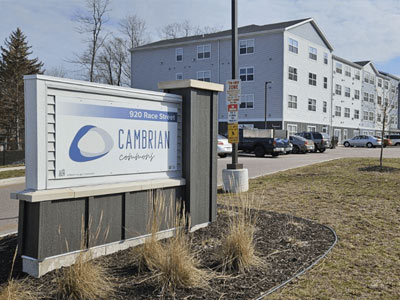
Cambrian Commons (Wisconsin Dells)
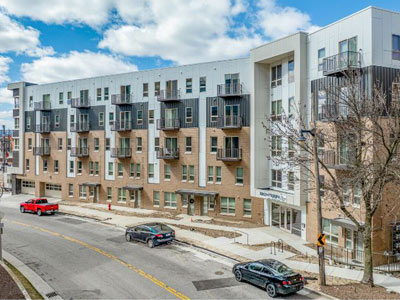
Eighteen87 on Water (Milwaukee)
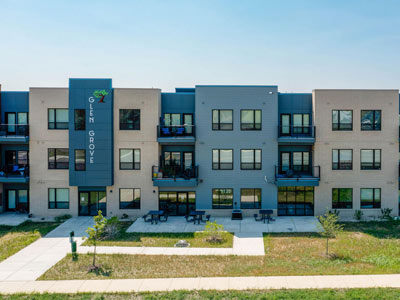
Glen Grove Apartments (Cottage Grove)
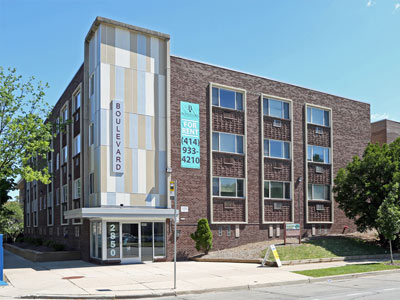
Boulevard Apartments (Milwaukee)
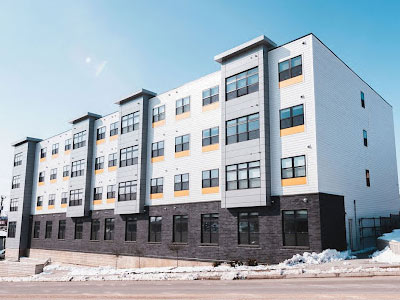
The Ruxton (Platteville)
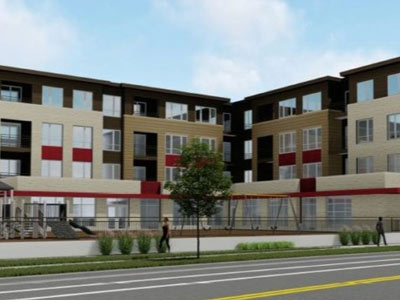
The André Apartments (Red Caboose) (Madison)
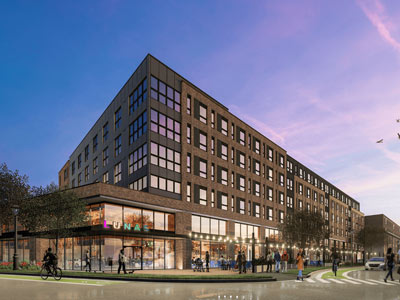
Park Cedar Apartments (Fourteen02 Park) (Madison)
Not Pictured
Forest Edge Apartments (Lac du Flambeau)
Summit Ridge Apartments (Madison)
Five Points Loft (Milwaukee)
Resources and Forms
Application File Checklist (Tenant)
Notice of Funding Availability
Contact Us
Applications and questions should be directed to Casey Dilley
811PRA@wheda.com
(608) 267-2820
